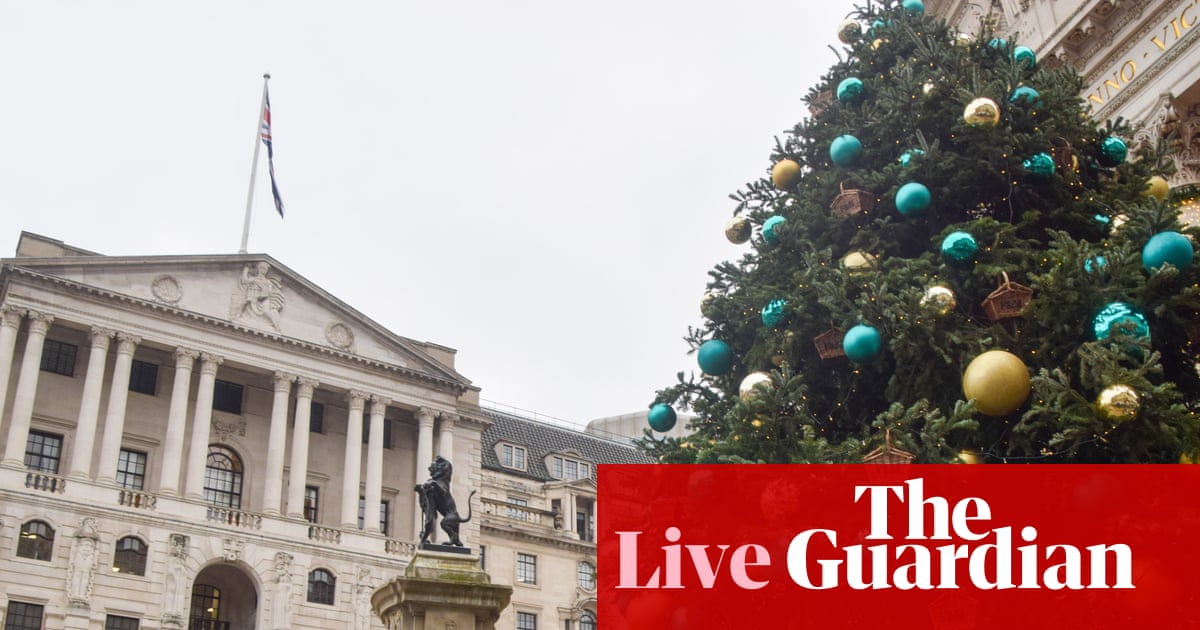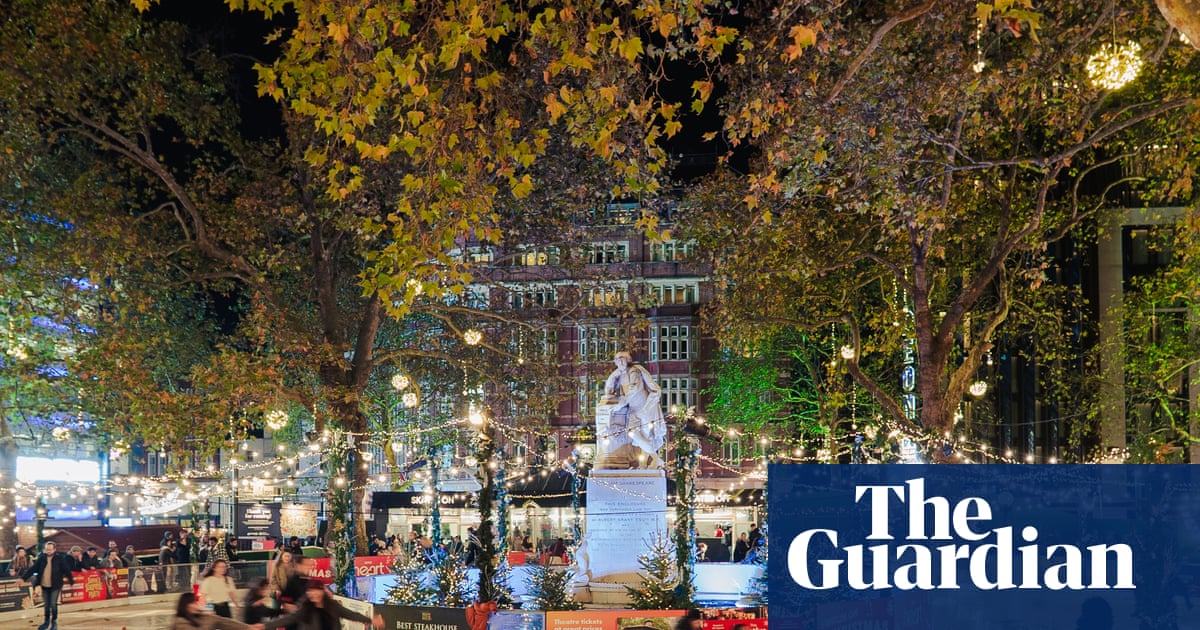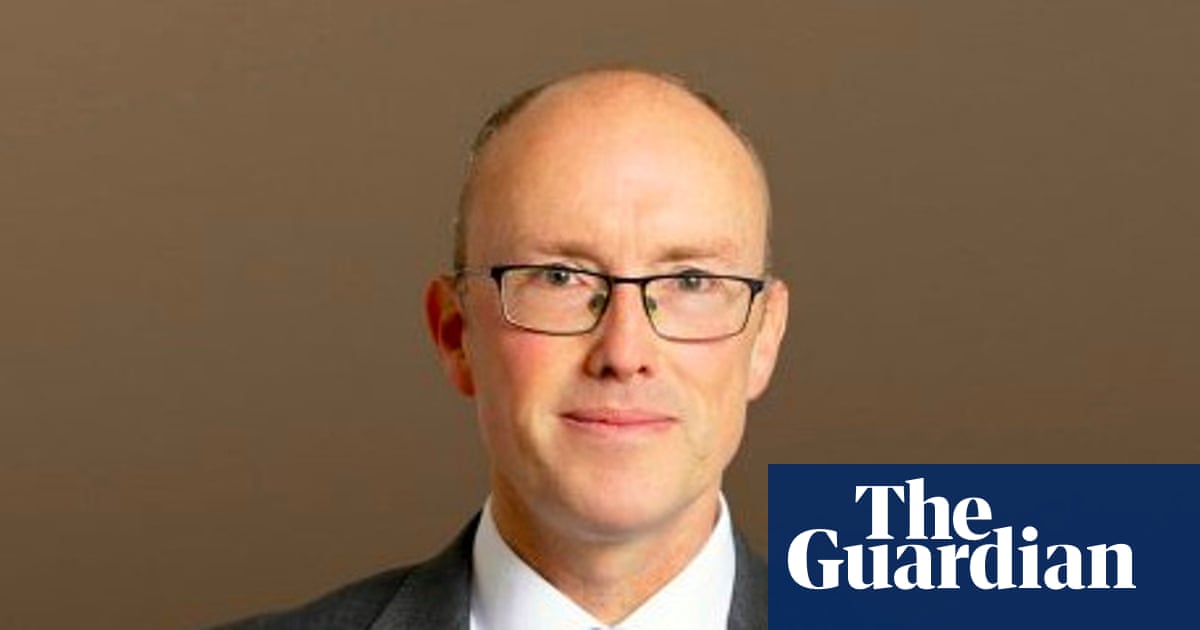Key events Show key events only Please turn on JavaScript to use this feature
Autumn budget to take place on 26 November, Treasury announces

Richard Partington
Richard Partington is the Guardian’s senior economics correspondent.
Rachel Reeves’s autumn budget will take place on 26 November, the Treasury has announced, amid mounting speculation over tax increases.
With the government under pressure on the economy, the chancellor has previously said measures designed to reboot growth would form the basis of her highly anticipated tax and spending plans.
The late November budget date will give Reeves time to prepare the ground for potential tax changes, raising the prospect of a high-stakes party conference season as Labour heads to Liverpool at the end of September.
Reeves is understood to have been exploring several revenue-raising measures over the summer months amid concern that rising borrowing costs, a sluggish growth outlook, higher inflation and welfare U-turns could expose a shortfall in the government finances worth up to £40bn.
The chancellor and the prime minister have, however, committed to sticking to Labour’s manifesto promise not to raise taxes on “working people”, including through income tax, national insurance and VAT.
Reeves has come under pressure from leftwing Labour MPs and campaigners to consider introducing a wealth tax. While the chancellor has privately ruled out such a step, she has been exploring options for raising more money from wealthier taxpayers, including changes to capital gains tax, as well as inheritance and property levies.
Announcing the date of the budget, the Treasury said Reeves had commissioned the Office for Budget Responsibility to prepare forecasts for the economy and public finances. The chancellor must give the independent watchdog 10 weeks’ notice.
There are hopes in the Treasury that news from Britain’s economy could improve before budget day, helping the chancellor to strike a more upbeat tone after a difficult first year in power for Labour.
Reeves could benefit from updated International Monetary Fund forecasts at its annual meeting in Washington in mid-October.
Nigel Farage to testify about Online Safety Act at US House of Representatives
Good morning. It is the first PMQs since July, and with the government set to announce the date of the budget today (Wednesday 26 November, if HuffPost UK is right), you would expect Keir Starmer and Kemi Badenoch to get stuck into a debate about the economy, and taxation.
But it might end up as a free speech day at Westminster, as a result of the conflation of two related issues.
First, Nigel Farage, the Reform UK leader, is in Washington where he is giving evidence to the House judiciary committee on “Europe’s Threat to American Speech and Innovation”. The committee wants to talk about the Online Safety Act, which is opposed by American tech companies who fear it will lead to them facing excessive fines, or even jail sentences, for not complying with UK content regulations deemed unnecessarily strict in the US.
And, second, the arrest yesterday of Graham Linehan, the Irish comedy writer, by five police officers at Heathrow over anti-trans posts on social media has reignited the debate about hate speech laws in the UK, and whether they are being enforced too rigorously by the police.
Linehan was arrested on suspicion of inciting violence – which is nothing to do with the Online Safety Act – but the two issues are bound to be linked, not least by Farage.
According to a report by Harry Cole in the Sun, in written evidence to the House judiciary committee ahead of today’s hearing Farage argued that Britain is now subject to an “illiberal and authoritarian censorship regime”. Farage said:
On the question of civil liberties, Britain has, unfortunately, now lost her way.
I will do my part, as a participant in UK democracy, to help our country find its way back to the traditional freedoms which have long bound together our two countries in friendship. In the meantime, Congress should draw bright lines: British free speech rules, applicable to Britons, are made in Britain, and American speech rules, applicable to Americans, are made in America.
Somewhere on this planet of ours, innovators must remain free to build the next generation of platforms without being hamstrung by illiberal and authoritarian censorship regimes that are alien to both American and traditionally British values. Right now, that place is America. Those of us in the UK will do what we can to make Britain such a place as well.
Cole says Farage has also suggested that the US should use “diplomacy and trade” (ie, the threat of sanctions) to resist UK and EU laws that threaten American tech companies. This could open Farage up to the charge of acting against the national interest, but it is not clear yet how far he will push this in the hearing.
Obviously, if the House judiciary committtee is really worried about threats to “American speech”, you could argue that it would do better investigating a White House administration that deports students who criticise Israel, insists on checking people’s social media posts before it allows them into the country, uses bogus legal challenges to extort money from media organisations that have criticised the president and bans journalists from the press pool for calling the Gulf of Mexico the Gulf of Mexico. But the Republican-led committee does not seem too bothered about all that.
And, if Reform UK is serious about free speech, it would be nice to hear Farage asked about Reform-led Nottinghamshire county council refusing to talk to the Nottingham Post because of its critical media coverage. That is not likely to be on the agenda in Washington either. But it may get a mention at PMQs.
Here is the agenda for the day.
10.30am: Shabana Mahmood, the justice secretary, gives evidence to the Lords constitution committee on the rule of law.
Noon: Keir Starmer faces Kemi Badenoch at PMQs.
Afternoon: John Swinney, Scotland’s first minister, makes a statement to MSPs at Holyrood about Gaza.
Afternoon: Stamer has a meeting with his Spanish counterpart, Pedro Sánchez, in Downing Street.
3pm: Nigel Farage, the Reform UK leader, gives evidence to the House of Representative’s judiciary committee in Washington about freedom of speech in the UK.
If you want to contact me, please post a message below the line when comments are open (normally between 10am and 3pm at the moment), or message me on social media. I can’t read all the messages BTL, but if you put “Andrew” in a message aimed at me, I am more likely to see it because I search for posts containing that word.
If you want to flag something up urgently, it is best to use social media. You can reach me on Bluesky at @andrewsparrowgdn.bsky.social. The Guardian has given up posting from its official accounts on X, but individual Guardian journalists are there, I still have my account, and if you message me there at @AndrewSparrow, I will see it and respond if necessary.
I find it very helpful when readers point out mistakes, even minor typos. No error is too small to correct. And I find your questions very interesting too. I can’t promise to reply to them all, but I will try to reply to as many as I can, either BTL or sometimes in the blog.

.png) 2 months ago
27
2 months ago
27

















































